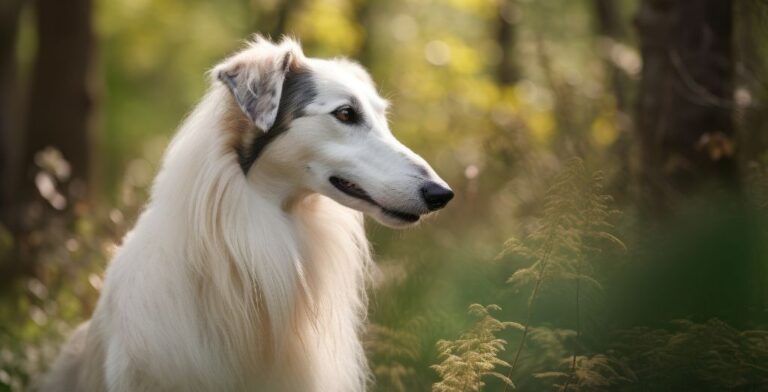Dutch Shepherd Dog – The Intelligent and Versatile Breed
The Dutch Shepherd Dog is a highly intelligent, energetic, and versatile breed known for its loyalty and hardworking nature. Originally bred in the Netherlands for herding livestock, this rare breed has gained popularity as a family pet, working dog, and service animal. Whether you’re considering adopting one or just want to learn more, this guide will provide insights into the Dutch Shepherd’s history, characteristics, temperament, training, care, and more.
History of the Dutch Shepherd Dog
The Dutch Shepherd originated in the Netherlands during the 19th century. These dogs were bred to be all-purpose farm dogs, assisting with herding sheep, guarding property, and pulling carts. Due to industrialization, the breed nearly went extinct, but dedicated breeders worked to preserve its lineage. Today, Dutch Shepherds are used in police work, search and rescue, and as loyal family pets.
Physical Characteristics
The Dutch Shepherd Dog has a strong, athletic build with a striking brindle coat. Key physical traits include:
- Size: Medium-sized breed, typically weighing between 42–75 pounds.
- Height: Ranges from 21–25 inches at the shoulder.
- Coat: Short, long, or rough-haired with a brindle pattern (gold or silver).
- Lifespan: 11–14 years.
Temperament and Personality
The Dutch Shepherd is known for being highly intelligent, alert, and loyal. These dogs are eager to please and excel in obedience training. Their temperament includes:
- Intelligence: Quick learners, capable of advanced training.
- Loyalty: Strong bonds with their owners.
- Protectiveness: Naturally alert and excellent watchdogs
- Energy Level: Highly active, requiring daily physical and mental stimulation.
Pros and Cons of the Dutch Shepherd Dog
Pros:
- Highly Intelligent: Quick learners that excel in training and obedience.
- Loyal and Protective: Form strong bonds with their families and make great watchdogs.
- Versatile Working Dog: Can be trained for police work, search and rescue, agility, and herding.
- Energetic and Athletic: Perfect for active owners who enjoy outdoor activities.
- Minimal Grooming Needs: Requires moderate brushing and occasional bathing.
Cons:
- High Energy Level: Needs ample exercise and mental stimulation, making them unsuitable for sedentary owners.
- Requires Early Socialization: Can be wary of strangers without proper exposure from a young age.
- Not Ideal for First-Time Owners: Their intelligence and energy require experienced handling.
- Can Be Stubborn: Needs consistent and firm training to prevent behavioral issues.
- Rare and Expensive: Finding a reputable breeder may be challenging, and they can be costly.
Training and Socialization
Dutch Shepherds are highly trainable due to their intelligence and eagerness to work. However, they require proper training and socialization from an early age to prevent behavioral issues.
- Obedience Training: Consistency and positive reinforcement work best.
- Socialization: Exposure to different people, places, and situations helps them adapt.
- Work and Activities: Excellent for agility, herding, obedience trials, and police work.
Exercise Requirements
Being a high-energy breed, the Dutch Shepherd requires ample exercise to stay happy and healthy. Recommended activities include:
- Daily walks and runs.
- Playtime with interactive toys.
- Agility and obedience training.
- Herding exercises (if possible).
Grooming and Maintenance
Grooming requirements vary based on coat type:
- Short-haired Dutch Shepherds: Require weekly brushing.
- Long-haired Dutch Shepherds: Need more frequent brushing to prevent matting.
- Rough-haired Dutch Shepherds: Should be brushed regularly to maintain coat health.
- Bathing: Only when necessary, as their coats are naturally dirt-resistant.
- Nail trimming: Regular trimming to avoid overgrowth.
Health and Common Issues
Dutch Shepherds are generally a healthy breed but can be prone to some health concerns, including:
- Hip and elbow dysplasia: Common in active breeds.
- Eye conditions: Progressive retinal atrophy (PRA) may occur.
- Allergies: Some individuals may have skin sensitivities.
- Bloat: As with many deep-chested dogs, bloat can be a concern
Routine vet check-ups, a balanced diet, and proper exercise can help maintain their overall well-being.
Is the Dutch Shepherd Right for You?
The Dutch Shepherd Dog is an excellent choice for active families, working homes, and individuals looking for a highly trainable companion. However, they require dedicated training, exercise, and socialization to thrive. If you’re considering adopting one, ensure you have the time and resources to meet their needs.
FAQs
1. Are Dutch Shepherds good family dogs?
Yes, Dutch Shepherds can make excellent family pets when properly trained and socialized. They are loyal and protective, making them great companions.
2. How much exercise does a Dutch Shepherd need?
Dutch Shepherds require at least 60–90 minutes of daily exercise. Activities like running, agility training, and playing fetch help keep them stimulated.
3. Are Dutch Shepherds aggressive?
No, Dutch Shepherds are not naturally aggressive. They are protective and may be reserved with strangers but are generally friendly with proper socialization.










